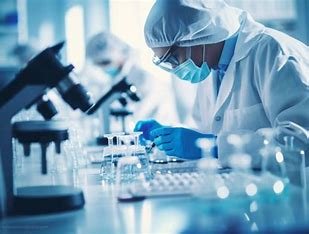Explore how the FDA’s final rule changes the regulatory landscape for Laboratory Developed Tests (LDTs), including compliance challenges and opportunities for laboratories.
The regulatory landscape for Laboratory Developed Tests (LDTs) is undergoing a major transformation as the Food and Drug Administration (FDA) issues a final rule that will substantially change how these tests will be regulated. LDTs have been able to grow and be used as tests in clinical settings historically without compliance with the FDA’s usually required stringent oversight on in vitro diagnostic products (IVDs). But the agency rescinded that discretion; labs now have to meet the same testing rigor as FDA-approved IVDs. This FDA move is designed to enhance patient safety and boost the integrity of diagnostic tests throughout health care.
Understanding the Final Rule
According to the FDA, proposed new rules should clarify the existing definitions of in vitro diagnostic products covering LDTs. As a result, LDTs are treated as medical devices under the Federal Food, Drug, and Cosmetic Act (FD&C Act). This change in classification which is one of the biggest changes proposed around devices means that the existing policies will subject LDTs to all medical device regulations, including premarket review, quality system regulation; and labeling as well as adverse event reporting. Indeed, the rule was formulated to level standards of safety and efficacy between LDTs and traditional IVDs, to reassure patients and healthcare providers that diagnostic testing is of high quality.
Challenges for Laboratories
For laboratories, the road to compliance with the new rule will be bumpy.
Premarket Approval: The primary barrier is FDA approval for LDTs. This requires substantial amounts of clinical studies and data analysis to prove that the lab is both clinically valid and has utility.
Quality Systems Regulation — Adherence to the Food and Drug Administration’s (FDA) Quality Systems Regulation [QSR]: The QSR is mandatorily requiring every lab to have a full-fledged quality management system. The system must be consistent, reliable for all laboratory operations (test performance).
Post-market Requirements: Another important PM requirement for LDT would be post market surveillance. To address this, laboratories need to monitor their LDTs and report adverse events: they should act quickly if a problem occurs.
Supporting Labs through this compliance journey are now medical device consulting firms. Leveraging long-standing relationships with FDA, experience in clinical trials and knowledge of industry trends, these firms offer strategic guidance and assist with the maze of regulations.
What BioBoston Consulting offers:
Designing a custom strategy for regulatory compliance: Laboratories must navigate a difficult regulatory maze in which consulting can provide them with clear and actionable next steps specific to their lab.
Preparation of Submissions: Submission Preparation — The process to prepare and submit materials for FDA approval requires absolute attention to detail. Consultants can help labs gather the necessary information, perform data analysis and quality checks so that submissions meet all regulatory requirements.
Compliance Training -It is important that the laboratory staff be trained on new quality standards and regulatory expectations, to stay compliant. Consulting firms can provide extensive training programs that have been designed to arm all employees with the necessary knowledge and skills needed to enforce strict quality controls.
The FDA’s final rule on LDTs is a turning point in the regulation of diagnostic testing. On one hand, it presents a lot of issues for labs, but look at it positively, this is also the chance to show their dedication to bringing quality diagnostic services. But with a medical device consulting service by your side, you are guaranteed that these necessary steps will be followed to get the FDA’s approval.
BioBoston Consulting provides industry-leading expertise and fit-for-purpose tailored solutions to assist clients navigating the complexities of these transitions.


